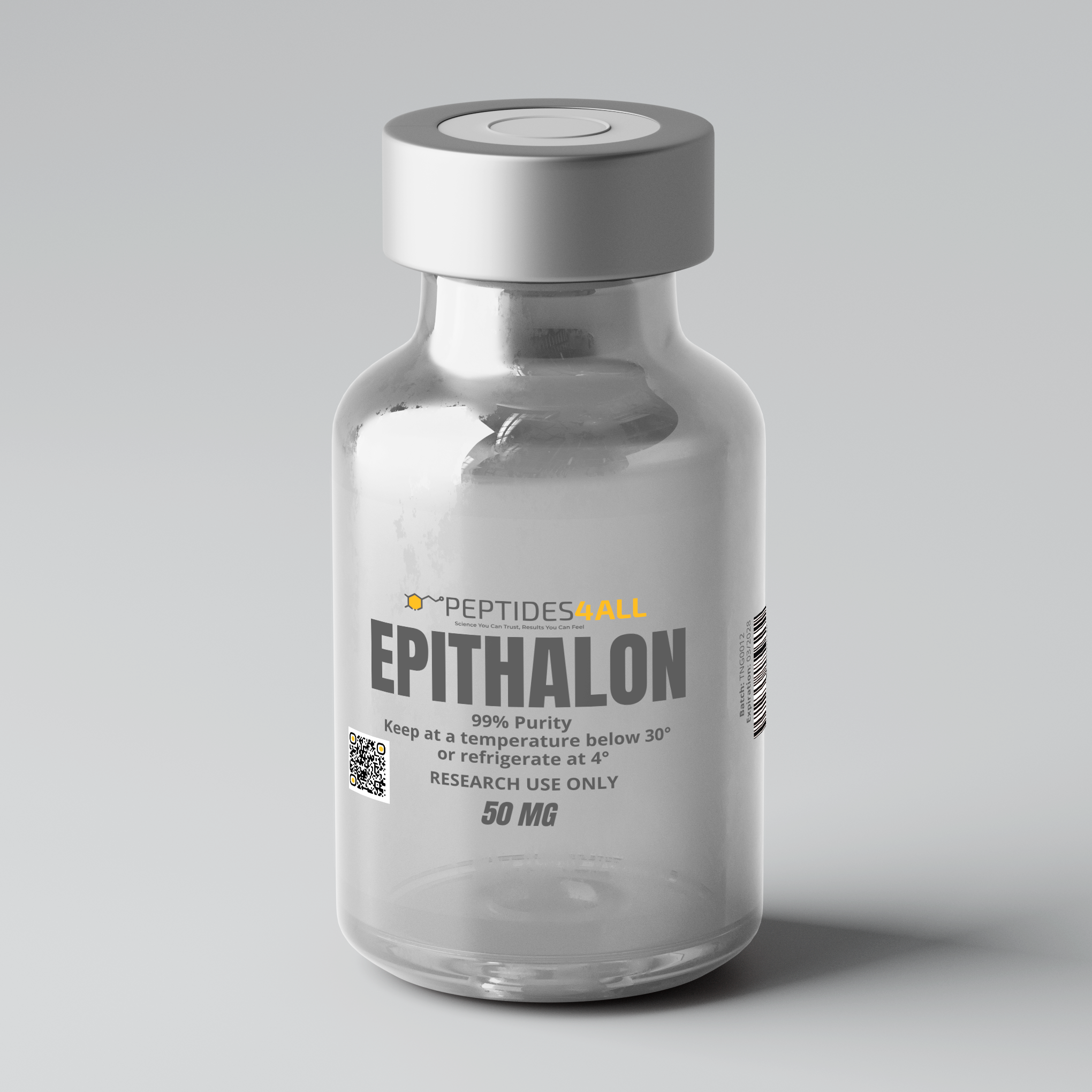Sequence: Ala-Glu-Asp-Gly
Format: Telomerase Activator Peptide
Chemical Description
Epithalon (Epitalon) is a synthetic tetrapeptide originally derived from the pineal gland extract epithalamin. Chemically, it functions as an epigenetic regulator. Research indicates that it interacts directly with the promoter region of the telomerase reverse transcriptase (TERT) gene, inducing its expression. This mechanism facilitates the elongation of telomeres in somatic cells. Additionally, Epithalon is studied for its influence on the pinealocyte transcriptome, specifically affecting the synthesis of antioxidant enzymes and circadian signaling factors.
Research Applications
This compound is strictly for laboratory research use in the study of:
- Telomerase Kinetics: Investigation of the transcriptional upregulation of TERT and the subsequent elongation of telomeres in fibroblast cultures.
- Chromatin Remodeling: In vitro analysis of heterochromatin condensation and genomic stability markers in aging cell lines.
- Pinealocyte Signaling: Research into the modulation of Arylalkylamine N-acetyltransferase (AANAT) activity and melatonin synthesis pathways in pineal explant models.
Technical Specifications
- Molecular Formula: C14H22N4O9
- Molecular Weight: 390.35 g/mol
- Purity: >99% (determined by HPLC)
- Appearance: Lyophilized White Powder
- Format: 100mg Kit (2 x 50mg Vials)
Presentation & Handling
- Form: Supplied as lyophilized peptide in sterile vial.
- Reconstitution: Use bacteriostatic water or 2% procaine; swirl gently (do not shake vigorously).
- Storage: Store at –20 °C, protected from light and moisture. After reconstitution, use according to research protocols and handle under sterile conditions.
Disclaimer: For Research Purposes Only
This content is provided strictly for laboratory research purposes and does not constitute an endorsement or recommendation for any non-laboratory application. The information provided regarding specific peptides is for educational and informational purposes only and must not be construed as medical, clinical, or legal guidance, nor as an encouragement for use in humans or animals.
Peptides described here are solely for use in structured scientific study by qualified researchers. We advise consulting with laboratory safety officers or research experts prior to handling these materials. The expectation of responsible, ethical utilization of this information for legitimate investigative and scholarly objectives is paramount. This notice governs all content on this site.
